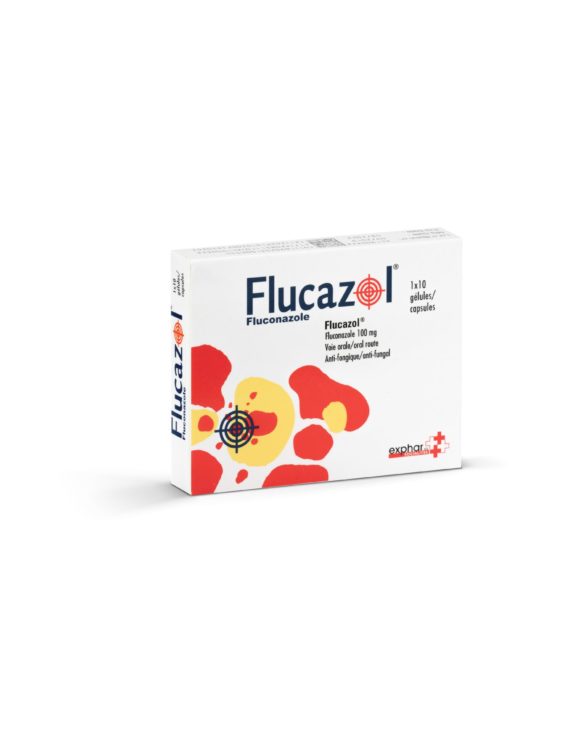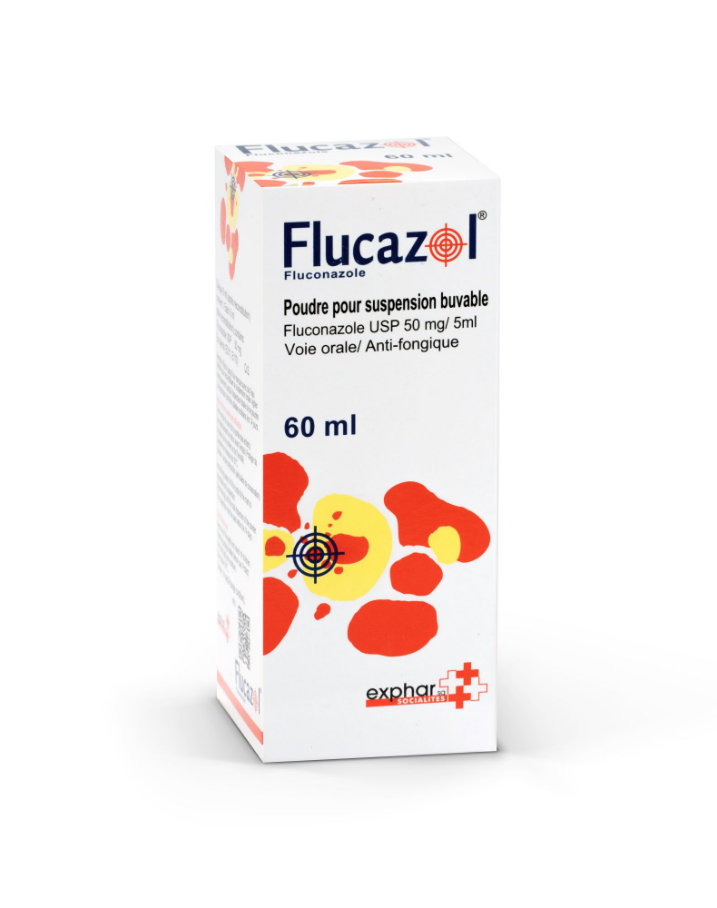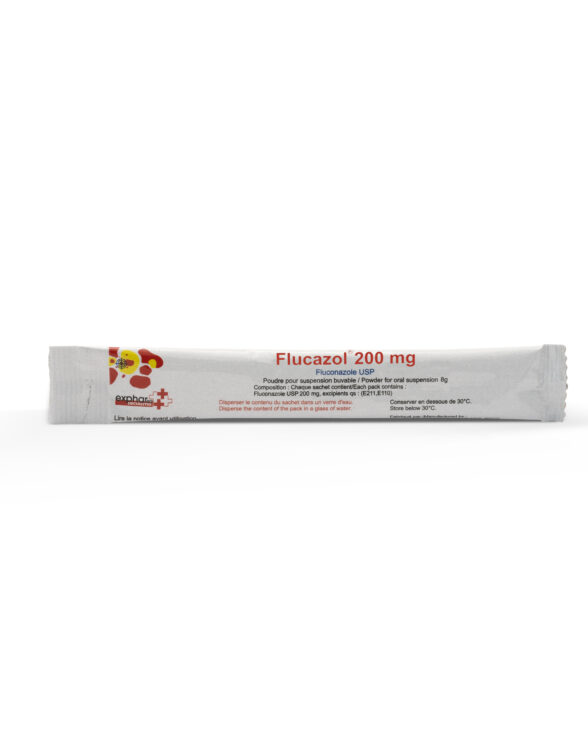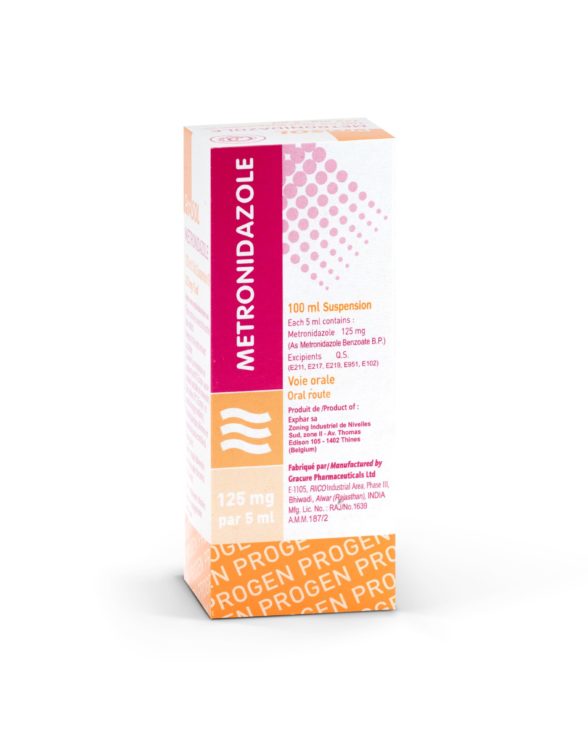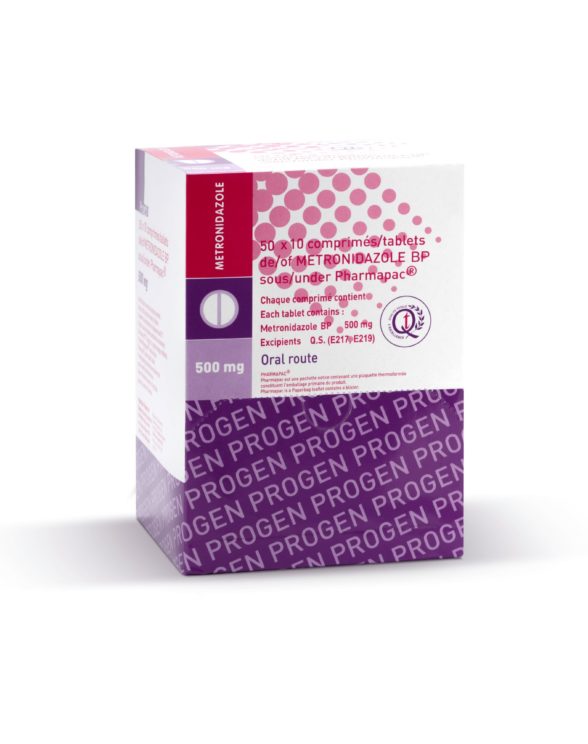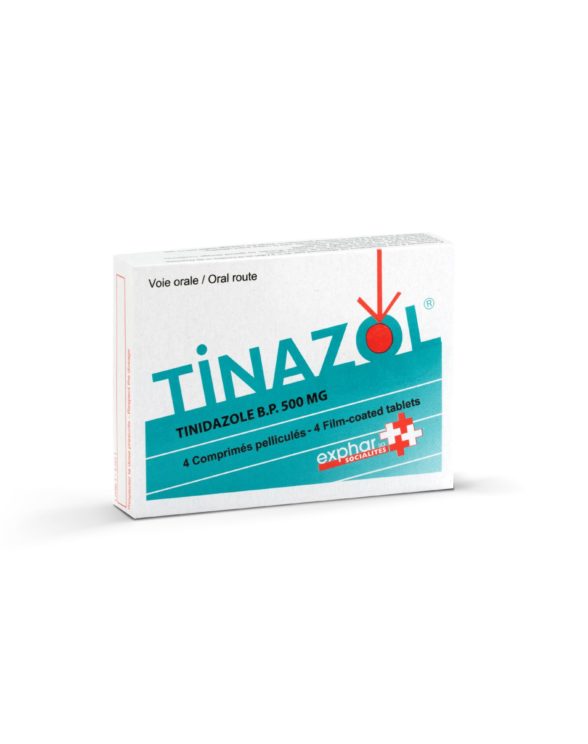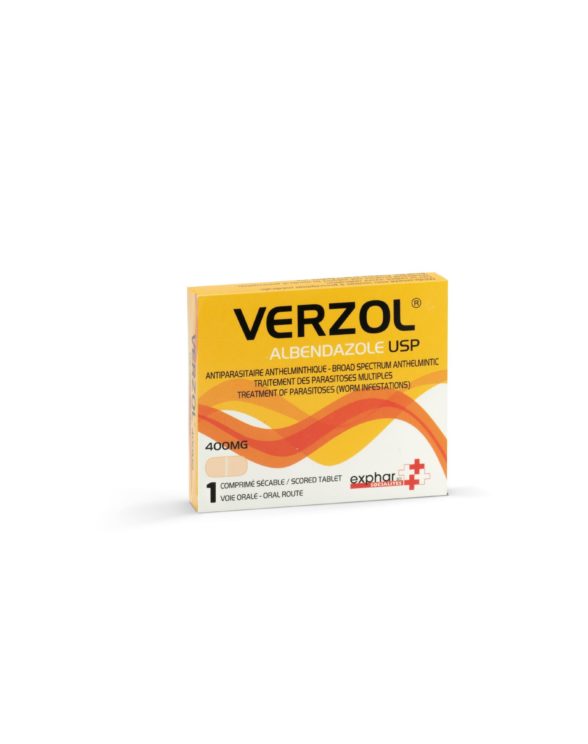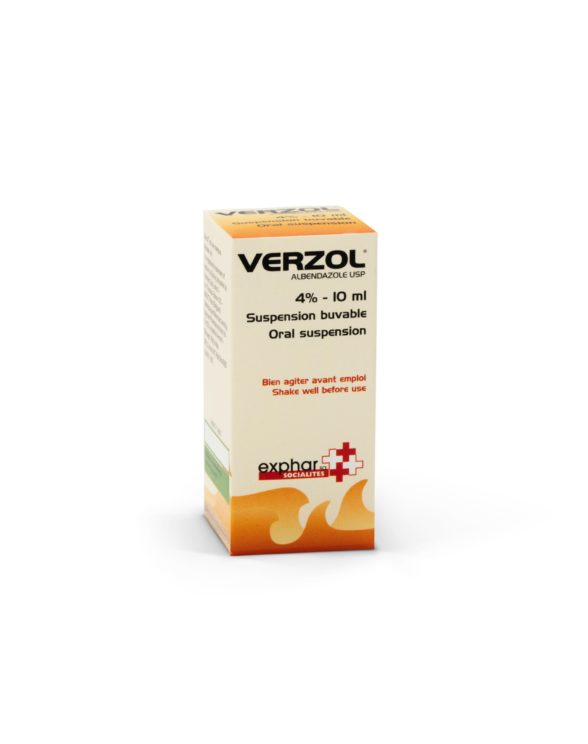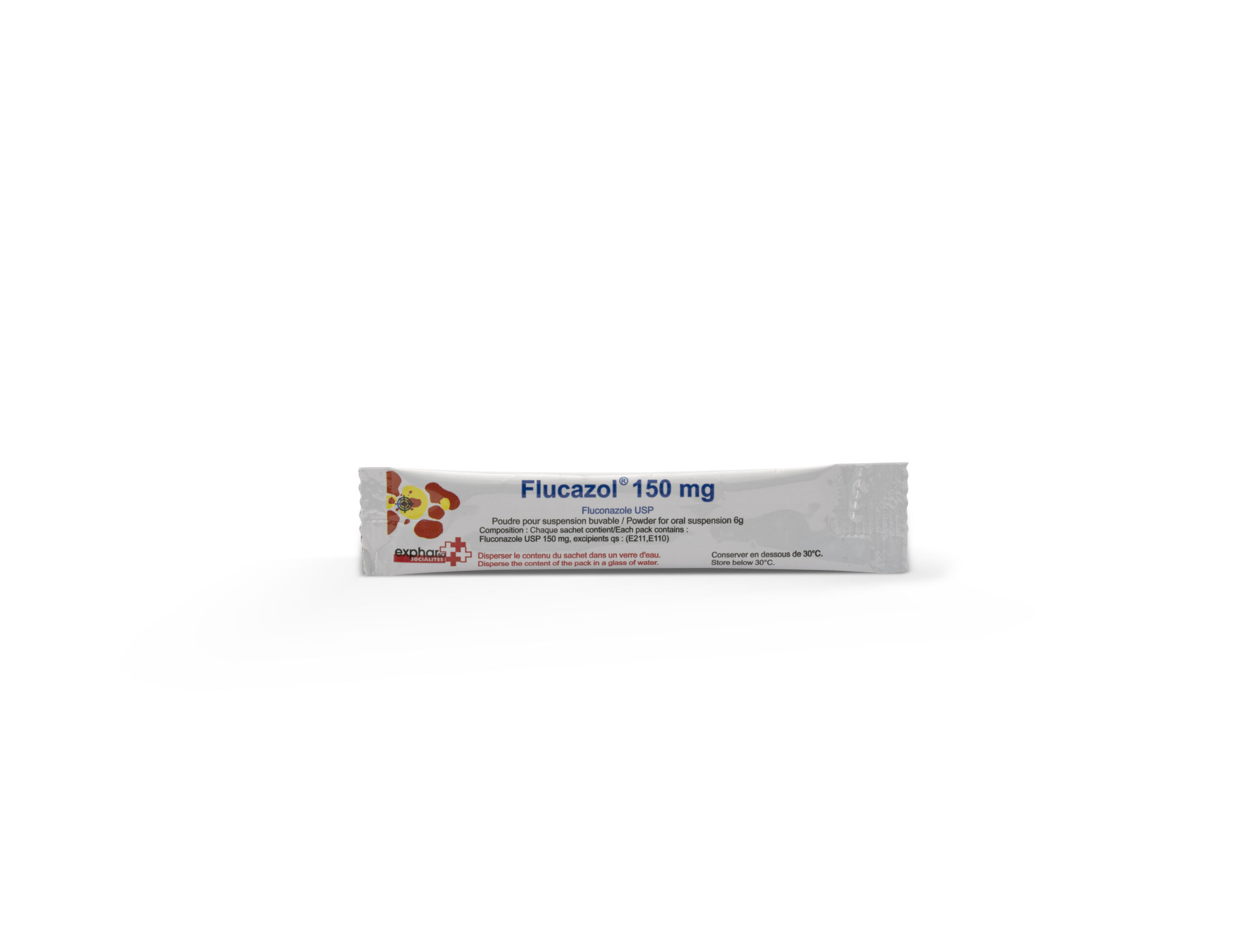

FLUCAZOL single-dose (150mg)
Form and presentation
Single-dose stick packs
Composition
Flucazanole
Indications
FLUCAZOL is indicated for the following fungal infections.
FLUCAZOL is indicated in adults for the treatment of:
- Cryptococcal meningitis (see section 4.4).
- Coccidioidomycosis (see section 4.4).
- Invasive candidiasis.
- Mucosal candidiasis, including oropharyngeal, oesophageal, candiduria and chronic mucocutaneous candidiasis.
- Chronic atrophic oral candidiasis (pain from dentures) where dental hygiene or local treatment is insufficient.
- Vaginal candidiasis, acute or recurrent when local treatment is not possible.
- Candidiasis balanitis when local treatment is not possible.
- Dermatomycoses, including tinea pedis, tinea corporis, tinea cruris, tinea versicolor and dermal Candida infections when systemic treatment is indicated.
- Tinea unguinium (onychomycosis) when other agents cannot be used.
FLUCAZOL is indicated in adults for the prophylaxis of:
- Recurrence of cryptococcal meningitis in patients at high risk of relapse.
- Recurrence of oropharyngeal or esophageal candidiasis in HIV-infected patients at high risk of relapse.
- To reduce the incidence of recurrent vaginal candidiasis (4 or more episodes per year).
- Prophylaxis of Candida infections in patients with prolonged neutropenia (such as patients with haematological malignancies treated with chemotherapy or patients undergoing haematopoietic stem cell transplantation) (see section 5.1).
FLUCAZOL is indicated for use in full-term neonates, infants, children and adolescents, aged 0-17 years:
- FLUCAZOL is used for the treatment of mucosal candidiasis (oropharyngeal, oesophageal), invasive candidiasis, cryptococcal meningitis and for the prophylaxis of Candida infections in immunocompromised patients. FLUCAZOL may be used as maintenance therapy to prevent recurrence of cryptococcal meningitis in children at high risk of relapse (see section 4.4).
- Treatment may be initiated before the results of cultures and other biological tests are known. However, once these results are available, anti-infective therapy should be adjusted accordingly.
Official recommendations on the appropriate use of antifungal agents should be taken into account.
